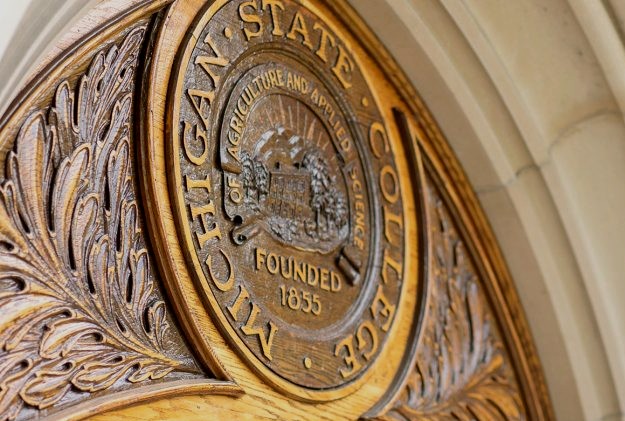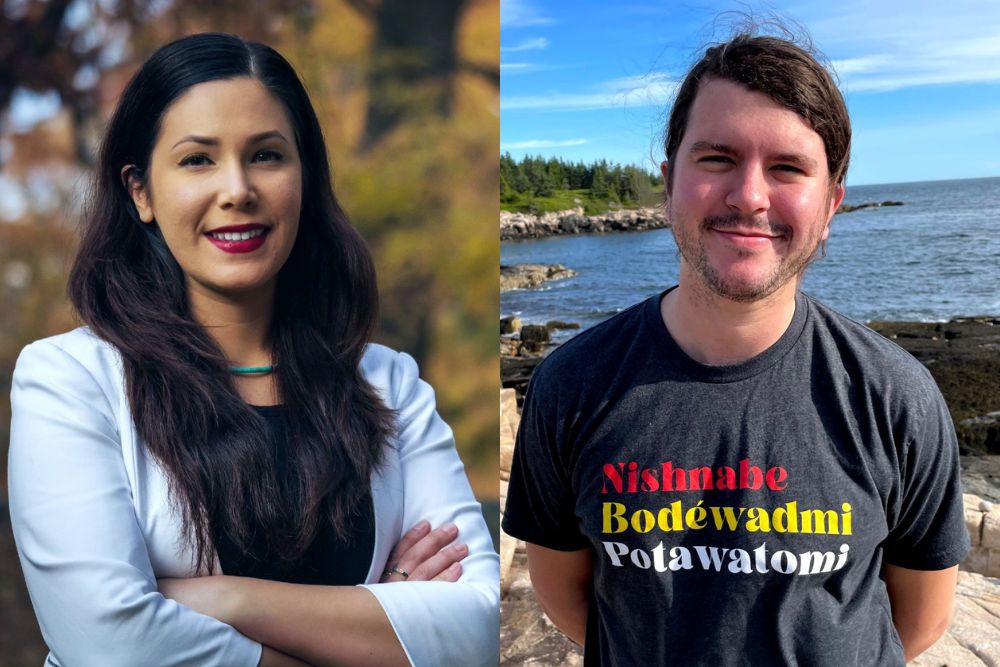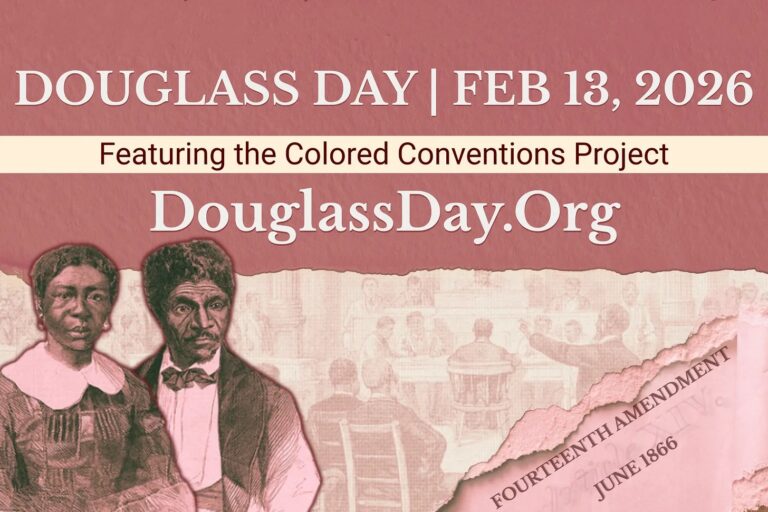Michigan State University’s Department of Religious Studies will expand its curriculum to include a focus on Anishinaabe communities, and more broadly, Great Lakes Native American cultures thanks to the creation of two new faculty positions conceived by the Department’s winning proposal for an inaugural 1855 Professorship.
Named for the year MSU was founded, the 1855 Professorships, created by the Office of the Provost, aim to advance MSU’s Strategic and Diversity, Equity, and Inclusion (DEI) priorities by transforming the impact made on minoritized, marginalized, and underrepresented communities both on and off campus. Established as a reimagining of the University’s foundational land-grant mission of elevating the pursuit of practical knowledge and broadening educational access, the 1855 Professorships support inclusive excellence with scholarship and public engagement at MSU.

In Fall 2021, the Office of the Provost announced the creation of the 1855 Professorships and asked for proposals for these full-time, tenure-stream positions. Altogether, 76 proposals were submitted from across the University with every college participating. A competitive review process by a committee of scholars and administrators led to the selection of 13 proposals, including the proposal from the Department of Religious Studies.
The Department originally was awarded one 1855 Professorship. But when they received two exceptional applicants, the decision was made to fund two 1855 Professors. One of the positions is being funded by the Office of the Provost and the other by the College of Arts & Letters.
“I can’t overstate how thrilled we are about these positions…I know that our positions will be transformational for the University.”
Amy DeRogatis, Chair of the Department of Religious Studies
“I can’t overstate how thrilled we are about these positions,” said Amy DeRogatis, Chair of the Department of Religious Studies. “In the call that went out, the Provost asked that position requests demonstrate not just a need but a benefit to the University. I know that our positions will be transformational for the University.”
The 1855 Professorship positions in the Department of Religious Studies will focus on Great Lakes Anishinaabe knowledge, communities, spiritualities, and cultural practices.
“What is unique about these positions is the intentional effort to situate them in the region in which we live,” DeRogatis said. “Rather than calling it an Indigenous Religions position or a Native American Religions position, we felt a responsibility to our greater community and wanted the positions to be more locally connected to the Great Lakes Region.”
New 1855 Professors Hired
The Department recently hired Blaire Morseau, Assistant Professor in the Department of Anthropology at the University of Massachusetts – Boston, and Elan Pochedley, a Charles Eastman Postdoctoral Fellow at Dartmouth College, as members of MSU’s first cohort of 1855 Professors. They will begin their appointments on August 16, 2023.
“We are delighted to welcome Dr. Morseau and Dr. Pochedley as inaugural 1855 Professors,” said Thomas Jeitschko, MSU Interim Provost and Executive Vice President for Academic Affairs. “Their integrated approach to teaching, research, and outreach and engagement aligns with MSU’s tripartite mission to advance the University’s commitments in each of these three areas, making them exemplary scholars for these new professorships.”
“We are delighted to welcome Dr. Morseau and Dr. Pochedley as inaugural 1855 Professors. Their integrated approach to teaching, research, and outreach and engagement aligns with MSU’s tripartite mission to advance the University’s commitments in each of these three areas.”
Thomas Jeitschko, Interim Provost and Executive Vice President for Academic Affairs
The search committee for the 1855 Professorships in the Department of Religious Studies sought scholars whose research interests included Anishinaabe worldviews, ceremony, knowledge systems, and communal cultural practices in the context of colonialisms, resistance, resiliency, and sovereignty. They also looked for a sustained record of community-based engagement with a commitment to building relationships with Indigenous nations and communities through teaching, research, and service.
“As a member who sat on the search committee, I am extremely excited to have Dr. Blaire Morseau and Dr. Elan Pochedley joining our Native community,” said Kevin Leonard, Interim Director of the Native American Institute at MSU. “I am also excited to work with both of them in building collaborations between MSU and our Tribal Nations. Their research interests align extremely well with what we are hearing to be the needs of tribal people and communities across the state.”

Morseau is a Native American and Indigenous Studies artist and scholar who has been a member of the University of Massachusetts – Boston faculty since 2021. A citizen of the Pokagon Band of Potawatomi Indians, her expertise is in Indigenous futurism and science fiction with research interests in digital humanities, counter-mapping, and tribal archives. She currently has a book under contract, titled Mapping Potawatomi Futures, with the University of Arizona Press. She received both her Ph.D. and M.A. in Anthropology from the University of New Mexico and a B.A. in Anthropology from Rutgers University.
Pochedley currently is finishing up the two-year residential Charles Eastman Fellowship that he began in Fall 2021 and will complete in Summer 2023. An enrolled citizen of the Citizen Potawatomi Nation, his research focuses on how citizens and governments of Neshnabé/Anishinaabe nations inherit, practice, and communicate ethical obligations across generations – specifically with respect to their care of and reciprocal relationships with other-than-human relatives and the environments they mutually rely upon. Pochedley’s research also focuses on the intersections of ecological restoration initiatives, environmental justice, Indigenous geographies of place, and expressions of Indigenous nations’ sovereignties within their respective homelands and homewaters. He received his Ph.D. in Sociocultural Anthropology from the University of Minnesota-Twin Cities and a B.A. in Native/Indigenous Studies from Columbia College, Columbia University.
“By bringing Professors Morseau and Pochedley into the University together, our intention is to provide collaborative support that will make good on the promise to respond in meaningful ways to the needs of American Indian and Indigenous peoples.”
Christopher P. Long, Dean of the College of Arts & Letters
The 1855 Professorship positions in the Department of Religious Studies also will help augment the Less Commonly Taught and Indigenous Languages Partnership, which is a cross-university initiative led by the Center for Language Teaching Advancement (CeLTA) at Michigan State University and funded by the Andrew W. Mellon Foundation. This initiative promotes the expansion and teaching of Indigenous languages, among other less commonly taught languages.
“The arrival of Professors Morseau and Pochedley to MSU and the College of Arts & Letters elevates the quality of our programs in Religious Studies and American Indian and Indigenous Studies. Their arrival also will enhance our Mellon-funded Less Commonly Taught and Indigenous Languages Partnership program,” said Christopher P. Long, Dean of the College of Arts & Letters and Dean of the Honors College “Working collaboratively with the Provost’s Office, we were able to fund two 1855 Professors, one from the College of Arts & Letters and one from the Office of the Provost. By bringing Professors Morseau and Pochedley into the University together, our intention is to provide collaborative support that will make good on the promise to respond in meaningful ways to the needs of American Indian and Indigenous peoples.”
First Cohort of 1855 Professors
The first cohort of cross-disciplinary 1855 Professorships at Michigan State University will collaborate while engaging in critical public outreach in the areas of social and environmental justice; minority politics, urban journalism, law, and democracy; diversity and data sciences; and one health. These categories will serve as the professorship cohorts to advance collaboration and help build each area’s research, teaching, and outreach agendas at MSU.
Together, the 1855 Professors will work to enhance existing collaborations and foster new ones to advance MSU’s DEI objectives.
“I envision these two faculty members becoming instrumental parts of our Native community on campus and in building networks and collaborations with our tribal nations and people across the Great Lakes.”
Kevin Leonard, Interim Director of the Native American Institute
“This moment marks a truly historic point in the history of our University,” Leonard said. “The commitment from our administration to diversify the faculty through these 1855 Professorships will transform MSU across all areas of campus. As such, I can’t thank Interim President Woodruff, Interim Provost Jeitschko, and Dean Christopher Long enough for their commitment to diversifying the faculty of MSU, but more importantly, to seeing the significance of expanding this position allowing us to secure two very talented Anishinaabe educators. Beyond the unique and diverse perspectives these individuals bring to the Department of Religious Studies and the College of Arts & Letters, I envision these two faculty members becoming instrumental parts of our Native community on campus and in building networks and collaborations with our tribal nations and people across the Great Lakes.”
Soon after Morseau and Pochedley begin their new positions in August, they will work on creating new curriculum and will start to engage with the campus and local community.
“Dr. Morseau and Dr. Pochedley will be working to enhance our curriculum and the learning goals of our students, and they also will be a presence at this University and in the larger community,” DeRogatis said. “They are both superb scholars who pursue significant community-engaged research, and their voices will help fill a gap in our curriculum. It is so exciting to have them join our faculty — their scholarship, their community engagement, the curricular and co-curricular possibilities are tremendous.”
Written by Kim Popiolek
t


